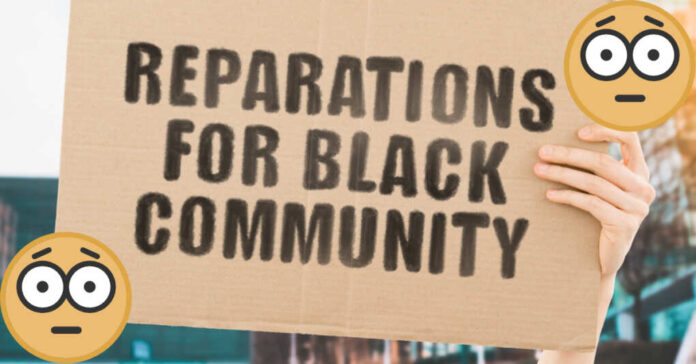
Let’s start with some of the ideas that the city-appointed reparations committee has for San Francisco:
• $5 million to every eligible adult
• The elimination of all personal debt and tax burdens
• Guaranteed incomes of at least $97,000 for 250 years
• Homes in San Francisco for $1 per family
That’s just a few of the 100+ suggestions the city-appointed reparations committee came up with for the city of San Francisco. Coming as the city aims to make up for what they call “centuries of slavery and systemic racism.”
While these ideas sound absolutely insane (and they are), what’s more bizarre is the overwhelming positivity from the San Francisco Board of Supervisors. Their overwhelming support of these ideas was only capped off by one saying that money shouldn’t stop the city from doing the right thing.
Looking at the 11 members of this Board of Directors and it becomes obvious what has happened here. The crowning symbol of liberalism has penetrated the group. With one Asian woman and one black man, the remainder of the board is just a mixture of San Francisco white guilt. These Caucasians just cannot fathom the idea of the US having a nasty past, so much like that aunt who always paid you to like her, they want to pay the blacks off to stop feeling guilty.
Granted, California and consequently San Francisco was a union state and never participated in slavery or segregation.
Nevertheless, these representatives were shocked to learn that the liberal San Francisco residents are not okay with these radical ideas. They also claimed that people must be unaware of the legacy slavery left behind, and how racist policies keep the black man down when it comes to their health, education, and money. Of course, they also tossed in the black population in prisons, and their representation amongst the homeless.
“Those of my constituents who lost their minds about this proposal, it’s not something we’re doing or we would do for other people. It’s something we would do for our future, for everybody’s collective future,” claimed Supervisor Rafael Mandelman. His district includes the LGTBQ epicenter, Castro.
Draft plans that were released back in December ignited massive backlash, and they weren’t the final plans, or anywhere near as involved as the latest ones. Anyone with a functioning brainstem has called these plans financially and politically impossible. According to early figures provided by Stanford University’s Hoover Institution, each non-black in the city would be on the hook for $600,000, and likely much more.
Given the recent downturn of the tech industry, and banks that tend to control a large amount of the capital inside of it shuttering, there is no possible way to make any reparations payments at this time. Yet advocates for the idea have been unrelenting in their quest to get people to freely hand over their money to unburden themselves of the heavyweight that either white guilt is throwing on them or claims that whites kept their ancestors and then them down.
San Francisco is also undergoing a massive shift in its demographic. In a bit over 50 years they have declined from 13% of the city’s residents to just 6%. Yet they account for 38% of the city’s homeless population. The city has also had a significant population boom since then, both homeless and housed people.
There are significant questions about this idea that have been raised. What would the minimum be on blackness? Would those who were not called black at birth be eligible if they could prove they were over a percentage black, and if so what is the percentage? What about those who were called black at birth but then turn out not to be? Then there is the topic of people who came here after slavery and their descendants. Are they liable for paying that money?
Reparations are a subject with too many variables, too many impossible-to-answer questions, and not enough ways to answer these questions. This was a horrific time in American history, but reparations don’t undue past damages, it just punishes people here now for things they aren’t responsible for.















